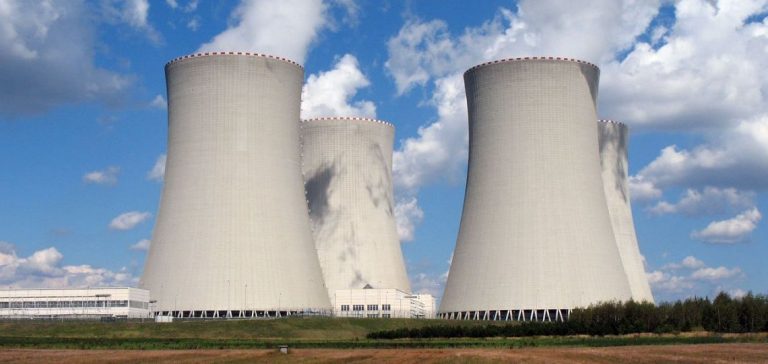In the vast steppe of Kazakhstan, on the outskirts of the half-abandoned and declining village of Ulken, a few dogs guard the vacant land intended to host the country’s first nuclear power plant. Rich in uranium but facing an electricity shortage, Kazakhstan views this project as a solution to its growing energy needs.
“I’ve been waiting for years for the construction to start, I dream of it,” declares Sergueï Tretiakov, a resident of Ulken, to the Agence France-Presse (AFP). This village, located in the south of the ex-Soviet republic five times larger than France, hopes that the commissioning of the power plant will revitalize the region and bring new economic opportunities.
The Decisive Referendum
For this dream to become reality, the majority of Kazakhs must vote “yes” in a referendum scheduled for Sunday. This vote, initiated by President Kassym-Jomart Tokayev, aims to obtain popular support for a project already largely approved by the authorities. Tokayev claims to want “to make important decisions with the support of the people,” although the support campaign is one-sided.
The issue of nuclear energy is sensitive in Kazakhstan, where collective memory remains marked by the approximately 450 Soviet nuclear tests conducted between 1949 and 1989 in the Semipalatinsk nuclear test site. These tests exposed about 1.5 million people to radiation, leaving lasting scars on the population and the environment.
Kazakhstan’s Energy Challenges
Kazakhstan is one of the world’s largest uranium producers, but despite this natural wealth, the country suffers from a chronic energy deficit. Nuclear energy is seen as a solution to bridge this gap, especially in the southern regions where half of the roughly twenty million Kazakhs reside.
Sergueï Tretiakov, a 55-year-old engineer, expresses his optimism: “We had already built dikes and a cooling basin. The soil is resilient and its location allows electricity distribution to the north and south.” However, the realization of this project will depend on the citizens’ decision in the referendum.
Ulken, a Declining Village
Since the collapse of the Soviet Union, Ulken has been experiencing marked decline. Abandoned buildings are juxtaposed with those whose entrances are bricked up, indicating gradual abandonment. The infrastructure initially planned to support the nuclear power plant was never completed, leaving the village in a state of semi-desertification.
Indira Kerimbekova, a municipal employee, flips through a photo album of Ulken under construction. “Until the collapse of the USSR, 10,000 people lived here. I have a hard time believing it,” she remarks while looking at a photo of a restaurant now in ruins. Businesses have been reduced to subsistence grocery stores, and the first hospital is 200 kilometers away.
Future Prospects
Despite the challenges, the residents of Ulken remain optimistic about the potential benefits of the nuclear power plant. “I really want our village to prosper,” declares Tatiana Vetrova, a retiree. Anna Kapoustina, a housewife, also hopes for economic revival in the community.
To mobilize support, the authorities have set up the “people’s headquarters for the construction of a nuclear power plant,” a branch of the omnipotent presidential party. Information sessions are being organized across the country, highlighting promises of affordable and continuous electricity. “I know what it’s like to light candles,” says Mrs. Kapoustina, confident in the project’s advantages.
However, some voices oppose the power plant, recalling the health and environmental damages from past nuclear tests. Jeksenkoul Koulanbaïeva, a 62-year-old retiree, expresses her fears: “We will lose the lake and the fish, I am against this power plant.” President Tokayev acknowledges concerns about the safety of new nuclear installations, considering the tragic legacy of Semipalatinsk.






















